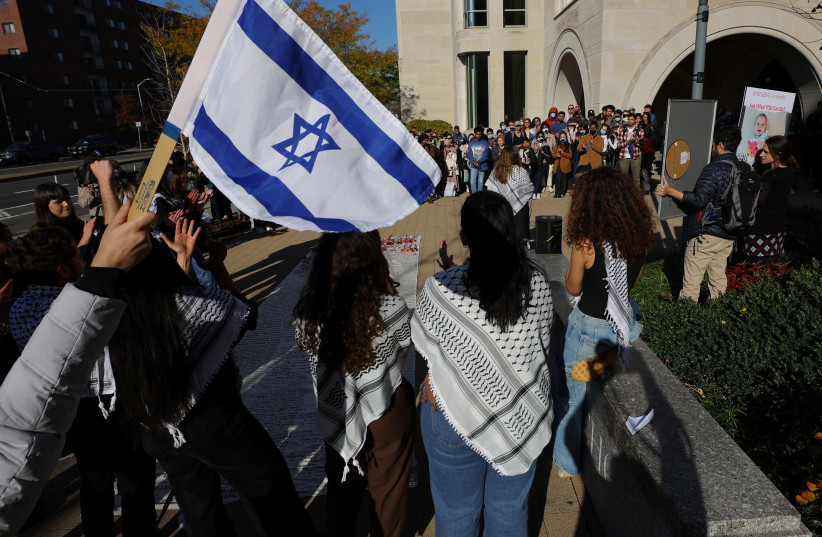This is how we fix antisemitism on college campuses – opinion
Glaring national attention recently was placed in Congress, when under pointed questioning by Representative Elise Stefanik, a New York Republican, three presidents of America’s most elite universities – Harvard, MIT, and the University of Pennsylvania – failed to articulate simply whether advocating genocide against Jews would constitute a violation of their campus conduct codes.
The need for responding with moral clarity, combined with the absence of any concrete policy in place that any of them could mention, created the proverbial perfect storm.
But that event also presents the larger opportunity to discuss what reasonable measures could be adopted by higher education institutions writ large as they confront the reality of combating the alarming rise of antisemitism and growing threats to Jewish students and faculty. Alas, the path forward may not be found in the hallowed halls of ivy, but rather in the sagebrush of Killeen, Texas.
That’s where Central Texas College (CTC) is located, and where discussing the possibilities of a “zero tolerance policy” for universities should begin.
Zero tolerance for hatred on campuses
There, the concern is more about consequences than context. As part of its “zero tolerance policy,” CTC has in place procedures for “appropriate disciplinary action for every weapon, threat, incident of hazing, stalking, harassment or discrimination, sexual misconduct, and/or violent act that is reasonably substantiated through investigation.”
The entire campus community has been put on notice.
“A zero tolerance policy is one which requires an appropriate penalty be imposed based on the individual circumstances. It is, as it states, intolerant of the prohibited behavior.”

Further, CTC has indicated that it “may also take disciplinary action for certain violations reported off campus to the extent these violations may have an impact on the campus. This includes, but is not limited to violations that pose an ongoing danger to students or may cause harm to the campus community, including violent crimes, hate crimes, disturbing or threatening actions, and illegal conduct.”
Among the inappropriate behaviors CTC notes are “verbal, written, or acts of harassment/discrimination to include sexual harassment/ discrimination, stalking, and bullying; acts or actions which can be interpreted as physical assault; hazing or dangerous initiations; threats or actions to harm someone or endanger the safety of others; behaviors or actions interpreted by a reasonable person as having potential for violence and/or acts of aggression; and threats to destroy or the actual destruction of property.”
What would happen if academic leaders around the country began to consider adopting a comparable zero tolerance policy on campus to concretely address how they would respond to the next calls for genocide against Jews? And beyond that, what if they were prepared to back up their words with the actions CTC expressed it is willing to take? “Violators will be subject to appropriate discipline up to and including termination, expulsion, and arrest.”
Considering such an approach would help the clouds to clear and rays of light to begin shining through once again.
As 2024 begins, the new year should bring with it new thinking to directly confront the antisemitic dangers that are so apparent now on college campuses nationwide. Zero tolerance is a useful way to start the conversation about what needs to be done – not in theory, but in practice.
The writer is a former chairman of the US-Israel Science and Technology Foundation.





Comments are closed.